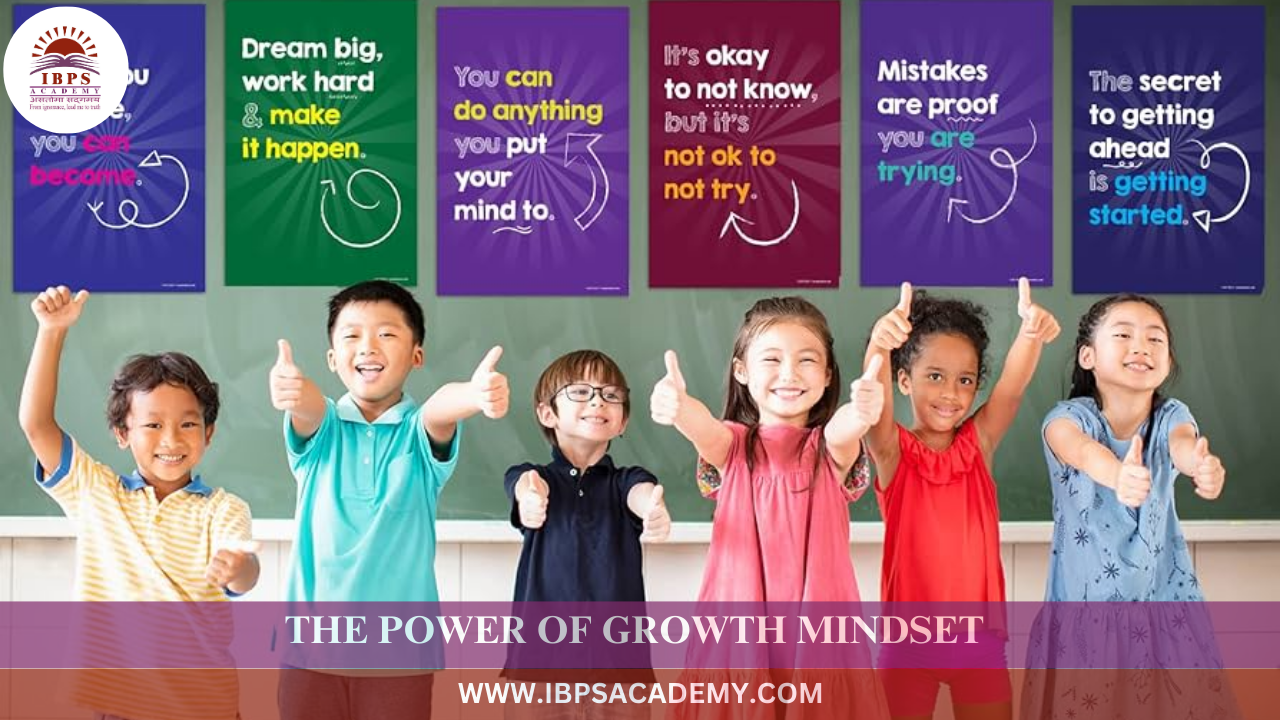

The power of a growth mindset lies in its ability to transform how we approach challenges, setbacks, and personal development. Developed by psychologist Carol Dweck, the growth mindset is the belief that abilities and intelligence can be developed over time through dedication, effort, and learning. This mindset contrasts with a fixed mindset, where people believe their abilities are static and unchangeable.
Here are some key ways the growth mindset can empower individuals:
People with a growth mindset welcome challenges rather than shy away from them. They see obstacles as opportunities to learn and grow, not as signs of failure.
When faced with failure, those with a growth mindset view it as part of the learning process. Instead of giving up, they adapt, learn from mistakes, and try again, understanding that effort leads to improvement.
The growth mindset fuels motivation because it encourages people to put in the effort necessary for success. Since they believe their abilities can be cultivated, they are more likely to persist through difficulties.
Instead of focusing solely on the end result, individuals with a growth mindset value the process, effort, and progress. This leads to healthier relationships with learning and achievement, reducing pressure to perform perfectly.
Those with a growth mindset are more likely to enjoy learning because they are not afraid of making mistakes. They are focused on improving, which fosters curiosity and exploration.
A growth mindset builds resilience, as individuals learn to view setbacks as temporary and fixable, making them better equipped to bounce back from difficulties.
Studies show that a growth mindset can lead to higher achievement. This is because the focus on effort and learning over innate talent encourages consistent improvement.
With a growth mindset, people become more resourceful and creative in problem-solving. Rather than feeling stuck by a challenge, they are more likely to seek out solutions, test different approaches, and think outside the box.
A growth mindset allows individuals to be more adaptable in changing environments. They can easily adjust to new situations, learn new skills, and thrive in different contexts because they don’t fear the unknown or uncertainty.
People with a growth mindset are open to constructive criticism because they view it as a tool for improvement. They do not take feedback personally but instead use it as a guide to refine their abilities and enhance their performance.
With a growth mindset, success is seen as a direct result of hard work and continuous learning. This helps build genuine self-confidence, not based on a belief in fixed abilities but on the realization that effort and learning lead to success.
A growth mindset fosters a love for lifelong learning. People who embrace this mindset recognize that there’s always room to grow and improve, regardless of age or experience, making them lifelong learners.
In personal relationships, a growth mindset promotes empathy and understanding. People are more likely to work through misunderstandings, see the potential for growth in others, and collaborate effectively to overcome challenges.
Failure isn’t seen as a final judgment but as part of the journey toward mastery. This mindset reduces the fear of failure, encouraging people to take risks, try new things, and learn from their mistakes rather than avoiding challenges altogether.
A person with a growth mindset becomes an inspiration for those around them. By demonstrating resilience, hard work, and the willingness to improve, they encourage others to adopt a similar approach to challenges, creating a ripple effect of growth.
Instead of attributing success or failure to luck, circumstances, or other people, those with a growth mindset focus on what they can control: their effort, attitude, and learning. This sense of personal empowerment leads to more proactive and intentional actions.
With a growth mindset, people are more likely to cope effectively with stress. Instead of seeing challenges as insurmountable, they view them as opportunities to grow and improve, which reduces anxiety and helps them approach difficulties with a calm, focused mindset.
In a professional context, a growth mindset leads to more resilient and adaptable employees. They are likely to embrace new technologies, adapt to organizational changes, and tackle new challenges, all of which help them thrive in their careers.
When individuals in a group or team adopt a growth mindset, collaboration improves. People are more likely to share knowledge, support each other’s learning, and value collective progress, leading to better teamwork and stronger outcomes.
Because a growth mindset fosters consistent learning and adaptability, it is often associated with long-term success. Rather than burning out or plateauing after early success, those with a growth mindset continue evolving and achieving in a sustainable way over time.
A growth mindset creates a foundation for personal empowerment, continuous improvement, and resilience in all aspects of life, helping individuals unlock their full potential. Whether in academics, career, personal growth, or relationships, this mindset acts as a powerful tool for overcoming challenges and realizing long-term success.
